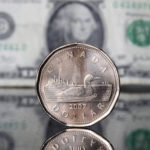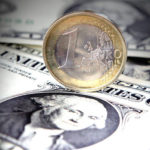 US stocks started the year with a decline for the first time since 2008, after a 2013 rally that brought the biggest gains in 18 years for the Dow Jones Industrial Average.
US stocks started the year with a decline for the first time since 2008, after a 2013 rally that brought the biggest gains in 18 years for the Dow Jones Industrial Average.
The Dow slid 135.31 points, or 0.8%, to 16441.35. Traders and strategists said the sell-off was driven by investors paring positions in US stocks and adding to holdings of bonds, which struggled last year as rising expectations for U.S. growth led to a sell-off in many fixed-income securities. The S&P 500 slid 0.9% to 1,831.98 at 4 p.m. in New York for the biggest decline in three weeks.
“The market artificially got inflated in those last few trading sessions of the year, so this brings us back to reality a little bit,” said to Wall Street Journal, Jonathan Corpina, senior managing partner at New York brokerage Meridian Equity Partners.
Data indicated applications for U.S. unemployment benefits declined last week to the lowest level in a month. Jobless claims fell by 2,000 to 339,000 in the period ended December 28, Labor Department data showed. The median forecast of 26 economists surveyed by Bloomberg called for 344,000 claims.
A separate report showed the Institute for Supply Management’s factory index fell to 57 in December from the prior month’s 57.3, which was the highest since April 2011. Readings above 50 indicate expansion.
Apple sank 1.4% to $553.13, leading an index of technology-hardware stocks to a 1.4% decline. Wells Fargo analyst Maynard Um cut the rating on the stock to market perform from outperform, saying the iPhone maker’s gross margin could come under pressure later in the year.
Abercrombie & Fitch slid 90 cents, or 2.7%, to 32.01, and Aéropostale lost one cent, or 0.1%, to 9.08, after analysts warned that the companies are struggling to stay relevant.
Urban Outfitters Inc. jumped 1.8% to $37.78. Jefferies Group LLC analyst Randal Konik upgraded the clothing retailer to buy from hold. Urban Outfitters dropped 5.7% last year, making it the only consumer discretionary stock in the S&P 500 to decline.
Analog Devices fell 3.2% to $49.28. Goldman Sachs analyst James Covello cut the circuit maker from sell from neutral and lowered the stock’s price target to $41 a share. Wells Fargo analyst David Wong also downgraded the stock, to market perform from outperform, citing lower semiconductor demand through the end of last year.





